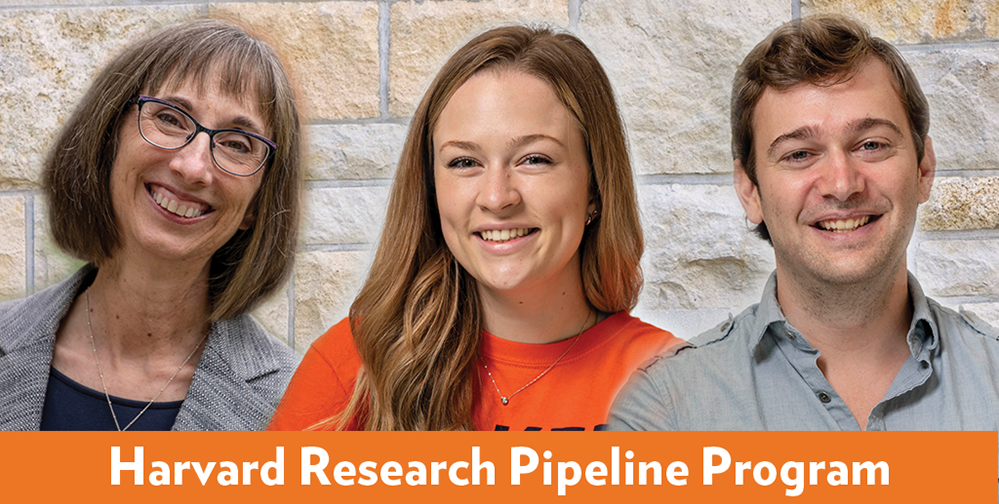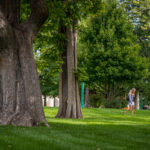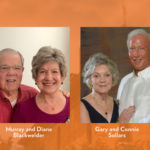One of the biggest benefits Baker University offers students is the opportunities it affords off campus, Assistant Professor of Mathematics Dr. William Duncan, ’12, said. Studying abroad. Internships. Travel interterms. Duncan did it all while at Baker, and now he’s part of creating those types of opportunities for other Baker students.
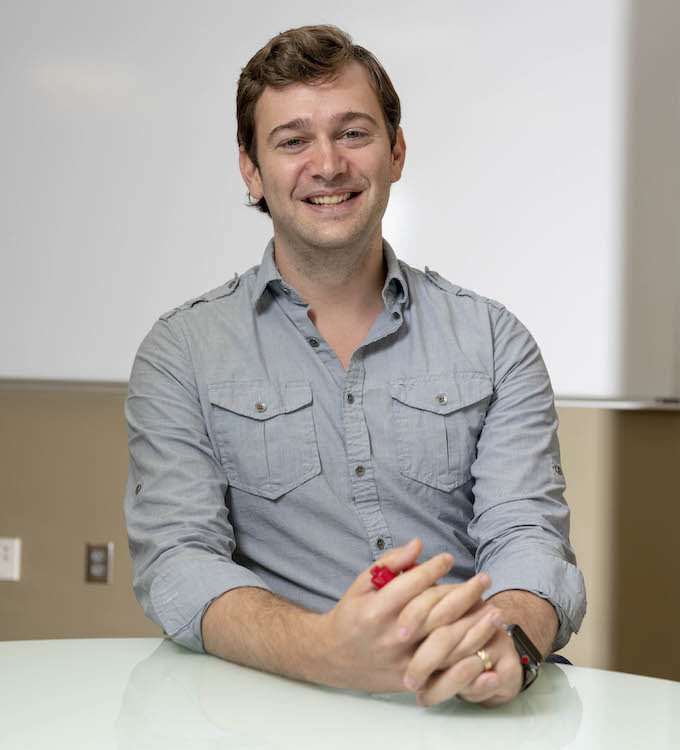
“It is so important for students to go forth, and I knew that if I was going to teach at Baker, I wanted to create opportunities for them to go beyond campus and gain skills and experiences that would help them be successful.”
Dr. William Duncan, ’12
Duncan and Dr. Lauren Breithaupt, a 2013 Baker graduate and assistant professor at Harvard Medical School, are spearheading a new pipeline program for Baker students. Researchers at Harvard Medical School need help with research, Breithaupt said, and have had a difficult time finding enough students to fill spots for Diversity Enhancement Grants provided by the National Institutes of Health.
Enter Baker University graduates.
An Ideal University
Breithaupt said when discussing potential programs and universities to partner with, it became evident that partnering with liberal arts universities outside of the New England area—which might not have access to as many on-campus research opportunities or biotech hubs in the area—would be best.

“Baker represents an ideal university to partner with. Baker’s foundational curriculum in liberal arts equips students with the critical thinking skills necessary to be a scientist. In addition, the small class sizes and amazing faculty provide the basic skills in science and math.”
Dr. Lauren Breithaupt, ’13
Since arriving at Harvard Medical School, a priority for Breithaupt has been to create sustainable training pipelines to increase diversity, including individuals from groups that have been shown to be underrepresented in health-related research.
“Examples include individuals from racial and ethnic minority groups, individuals with physical disabilities, individuals from disadvantage backgrounds, first-generation college students, and individuals from U.S. rural areas or areas that are low income or have a health professional shortage,” Breithaupt said. “While we could just try to advertise, recruit, and hire students for various positions, we wanted to create a training program to ensure students felt equipped to become leaders in health care and gained hands-on training—even before beginning a fellowship at Harvard Medical School.”
A New Opportunity
Duncan said before students apply for an NIH Diversity Enhancement Grant, they need to take a few courses to help them gain knowledge of statistics and R, a programming language and software widely used for developing statistical software and data analysis.
Students in the pipeline program are required to take Computer Topics: Introduction to R Programming and one of the following elective courses: Statistics and Modeling, Applied Data Analysis, or Advanced Applied Statistics. Students also take Scholars Salon, where they put together the grant application documents.
“Each of these electives allow students the opportunity to do a significant project in R,” Duncan said. “If they can do a significant research project using R, they should be ready to work with a scientist at Harvard Med to analyze data from clinical research trials funded by NIH. The pipeline program is a good fit for any student interested in pursuing careers and/or advanced degrees in medicine, psychiatry, or public health.”
Breithaupt said the required courses will teach students translational-science skills such as statistics, research design, and basics in programming, which are key across disciplines.
“Being that Will and I are both Baker graduates, we know firsthand that Baker’s students go on to be leaders in health care and science, as we are lucky to call many of them our friends. We hope this partnership will create a new opportunity for students to pursue health-related research to solve some of the nation’s most challenging questions,” Breithauput said.
Dr. Darcy Russell, ’80, dean of the College of Arts and Sciences, said the pipeline program will allow Baker students to hone their analytical skills and develop the confidence they need to succeed both in graduate studies and in the workplace.
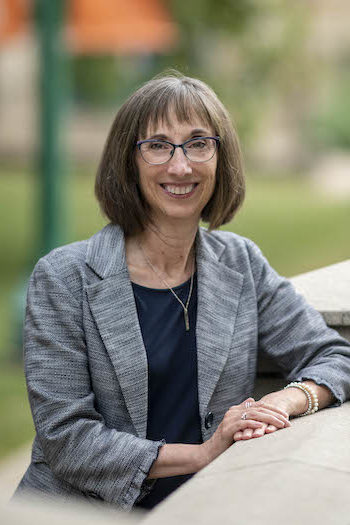
“Harvard Medical School is a premier institution, and I know that our students will springboard forward because of this experience,” she said. “We are proud to be part of this program, and as the dean, I am grateful to our faculty and alumni for their continued energy and innovation on behalf of Baker students.”
A Life Outside of Kansas
Students chosen for Baker’s pipeline program will apply for an NIH Research Fellowship for one to two years following graduation from Baker.
“During the year, students will work with a matched mentor at Harvard Medical School to design their research plan and any additional training requirements,” Breithaupt said. “Some projects include working on novel therapeutics for childhood obesity, molecular imaging to capture inflammation, understanding risk factors for skeletal fractures, building deep-learning algorithms for cardiovascular health, and identifying biomarkers for psychiatric disorders.”
Breithaupt said Baker students are encouraged to think strategically about their research interests and skills in order to find a mentor. “As an NIH Post-Bac Diversity Fellow, fellows will have the opportunity to conduct research studies, coauthor scientific papers and abstracts, and receive mentorship for applying to medical school and or graduate school.”
Emma Howard, a Baker public health major from Lawrence, Kansas, is participating in the pipeline program. Although she’s technically a junior, she plans to graduate in the spring.
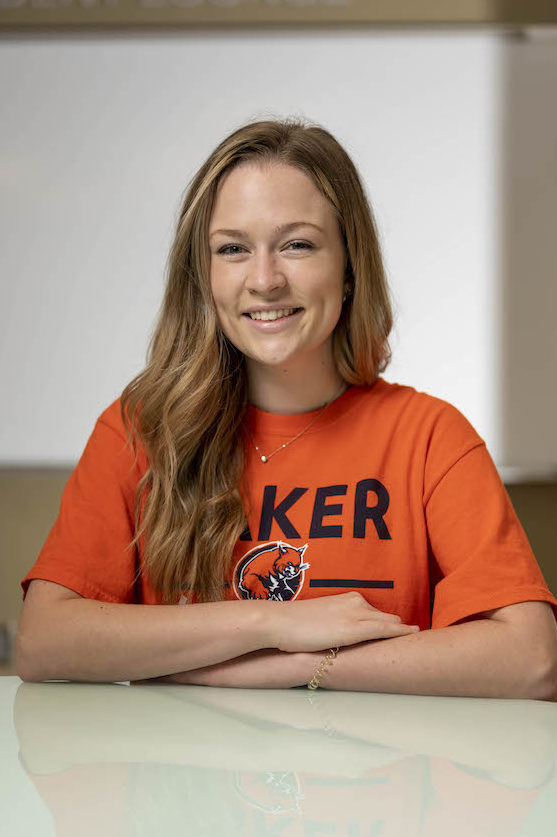
“I’m excited about the possibility of working at such a highly esteemed institution. Following my graduation, I am looking forward to working on health research that will change people’s lives. It’s exciting to consider a life outside of Kansas, and I was lucky enough to be extended this opportunity.”
Emma Howard, ’22
Howard hopes to learn what public health looks like in the real world and explore postgraduation options. “I am excited to learn about public health specialties that will hopefully help when I apply to graduate school. I hope to pursue a career as an epidemiologist or in maternal and women’s health.”
Just like the opportunities Duncan explored while studying at Baker, the pipeline program is just one more offering that sets Baker apart from other universities.
“Working with Lauren to first launch and now run this pipeline program is very fulfilling to me because it will give Baker students an amazing opportunity to go beyond Baker and set them up for a terrific career as a scientist,” he said.
Learn more:
Credits:
Written by Jenalea Myers, '08




